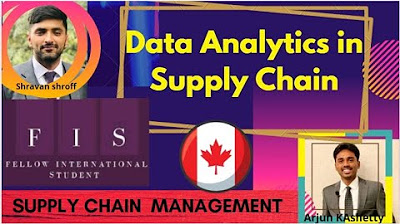Part III Mathematics at Cambridge: the Hardest Maths Course in the World
Summary
TLDREllie, 一位剑桥大学数学硕士毕业生,分享了她在学习世界上最难数学课程之一——剑桥大学第三部分数学课程的经历。她详细介绍了课程结构、评估方式、入学要求和准备工作,强调了课程的挑战性和密集性,同时也提供了如何选择模块、如何平衡学习负担的建议。Ellie还分享了她如何通过研究论文提升研究技能,并鼓励对研究感兴趣的学生选择论文选项。此外,她还提到了剑桥大学提供的支持系统,包括讲师、学院导师和系部联系人,以及她个人如何享受与世界顶尖研究者的互动。
Takeaways
- 🎓 Ellie 在剑桥大学完成了数学三部分(Part Three of the Mathematical Tripos),这是一门为期九个月的硕士课程,被认为是世界上最难的数学课程之一。
- 🌟 每年大约有260名学生参加这个课程,其中包括剑桥大学本科生和外部候选人。
- 📚 课程提供约75门课程,涵盖纯数学、概率统计、应用数学和理论物理等领域,旨在为学生提供深入研究的准备。
- 📈 Ellie 选择了连续介质力学和天体物理学作为她的专攻领域,这反映了课程允许学生根据自己的兴趣选择课程。
- 📝 学生可以选择是否撰写论文,这取决于他们是否对研究感兴趣。Ellie 选择了撰写论文,并在流体动力学领域取得了优异成绩。
- 📊 课程的评估主要基于考试,学生可以选择参加的模块数量,以满足不同等级的要求(优秀、良好或及格)。
- 🏆 剑桥大学的本科生如果成绩优异,可以继续攻读硕士课程,而外部候选人则需要具备一等荣誉学位或同等资格。
- 🔍 申请者需要在学术简历和申请中突出自己,以确保能够进入这个竞争激烈的课程。
- 📅 课程的强度很大,学生需要在八周的学期内学习大量内容,因此建议在开始课程前给自己足够的休息时间。
- 💼 学生在课程中主要得到讲师和学院导师的支持,但需要具备高度的独立性和自我激励能力。
- 📌 Ellie 强调了准备课程的重要性,建议学生在开始课程前熟悉所需的先修知识,并尽可能地了解课程内容。
Q & A
剑桥大学的数学三部分课程是什么?
-剑桥大学的数学三部分课程是一个为期九个月的授课型硕士课程,被认为是世界上最难和最密集的数学课程之一,每年约有260名学生参加。
数学三部分课程的课程结构是怎样的?
-数学三部分课程通常包括大约75门课程,涵盖纯数学、概率统计、应用数学和理论物理等多个领域。学生可以根据自己的兴趣选择课程组合。
学生在数学三部分课程中如何选择课程?
-学生可以根据自己的兴趣和能力选择课程,通常建议开始时选择四到五门课程,然后根据实际情况调整。每门课程的单位数不同,学生需要根据自己的目标成绩(如优秀、良好或及格)来决定需要修读的课程数量。
数学三部分课程的评估方式有哪些?
-数学三部分课程的评估主要基于考试,学生需要参加所选课程的考试。此外,学生还有机会撰写一篇研究性论文,这有助于提高最终成绩。
数学三部分课程的入学要求是什么?
-非剑桥毕业生通常需要拥有英国一等荣誉学位(数学、物理、工程或统计学)或同等资格。剑桥内部学生则需要在本科阶段表现优异。
数学三部分课程的学习强度如何?
-数学三部分课程非常密集,每个学期为8周,学生需要在短时间内学习大量内容。课程的难度取决于学生选择的课程数量和内容。
数学三部分课程提供哪些支持?
-学生可以从讲师、示例课教师、学院导师和部门联系人那里获得支持。此外,学生还可以通过与同学合作来互相帮助。
数学三部分课程的讲座是怎样的?
-讲座通常由世界领先的研究者进行,内容充满激情。三单元课程每周有三节讲座和一节示例课,两单元课程每周有两节讲座和几乎一节示例课。
数学三部分课程的课程内容会变化吗?
-是的,每年可能会有一些课程不再开设,同时也会有新的课程加入。学生需要查看当年的课程列表来确定哪些课程可供选择。
数学三部分课程的论文部分是怎样的?
-学生可以选择一个研究主题,进行深入研究。论文可以是原创研究,也可以是文献综述。完成论文后,学生会与导师进行几次会面,讨论进展。
数学三部分课程对未来发展有何帮助?
-该课程为数学研究提供了优秀的准备,并且对于那些希望在工业、教学或研究机构进一步培训的学生来说,也是非常有价值的。
Outlines

This section is available to paid users only. Please upgrade to access this part.
Upgrade NowMindmap

This section is available to paid users only. Please upgrade to access this part.
Upgrade NowKeywords

This section is available to paid users only. Please upgrade to access this part.
Upgrade NowHighlights

This section is available to paid users only. Please upgrade to access this part.
Upgrade NowTranscripts

This section is available to paid users only. Please upgrade to access this part.
Upgrade NowBrowse More Related Video

First Moscow State Medical University (Sechenov University) - the best medical university in Russia

Data Analytics in Supply Chain Management Canada🍁 Tools to use🎒 Pay Range🚛Roles & Titles & Companies

Not the hearing or Deaf world | Heather Artinian | TEDxGeorgetown

Reality of CS Majors

Prof. Chris Bishop's NEW Deep Learning Textbook!

600 Rejections Finding A Job In Tech | Prime Reacts
5.0 / 5 (0 votes)
